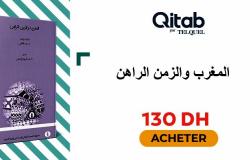While the digitalization of public services stands out as a global standard, Morocco is trying to fill its delay. Carried by an ambitious strategy called “Morocco Digital 2030”, the kingdom relies on an in -depth transformation of its administration. But if the intentions are clear, the implementation still takes time.
For several years, the question of administrative modernization has been in good place on the government agenda. Morocco aspires to offer citizens of faster, accessible and effective public services thanks to digital. This long -awaited transition is now framed by a national roadmap which sets specific objectives by 2030.
Small steps
The efforts undertaken begin to bear fruit. The kingdom has won places in the international e-government rankings. Between 2022 and 2024, he went from 113th au 100th world rank. On the African continent, he also progresses, hoist at 11th place. Encouraging signs, of course, but still far from the ambitions of becoming a continental leader by the end of the decade.
Read also | 5G arrives in Morocco!
A flagship project: “Idarati wallet”
At the heart of this strategy, the “Idarati Wallet” project intends to transform the relationship between the citizen and the administration. It is a single digital counter which will ultimately allow all administrative procedures to centralize on a mobile application. The objective: to reduce travel, to simplify procedures and strengthen the transparency of public services.
Persistent brakes
Despite these initiatives, several obstacles still slow down digital transformation. The interoperability of systems between administrations remains incomplete, forcing users to repeat the same steps with different entities. The procedural heaviness, although reduced on certain components, always remain quite restrictive.
Another major challenge: digital inclusion. An important fringe of the population, especially in rural areas is little familiar with digital tools, which may complicate the task, since the latter may be left behind. Without adapted support policies, the digital divide could increase.
A necessary culture change
Beyond technological infrastructure, the success of this transition is also based on a change in mentality. Administrations must adopt a new culture of service, based on listening, agility and transparency. This involves the training of agents, the simplification of internal processes, and greater empowerment of public actors.
Read also | Amal El Fallah Seghrouchni: “Morocco will not be a simple consumer of technologies”
A race to win
Morocco is now faced with an equation to be resolved: quickly transforming an administrative apparatus still marked by practices inherited from the past, while ensuring that this mutation is inclusive and durable. If the ambitions of Morocco Digital 2030 are held, the country will not only be able to improve the quality of its public services, but also to strengthen the confidence of citizens towards their institutions.








